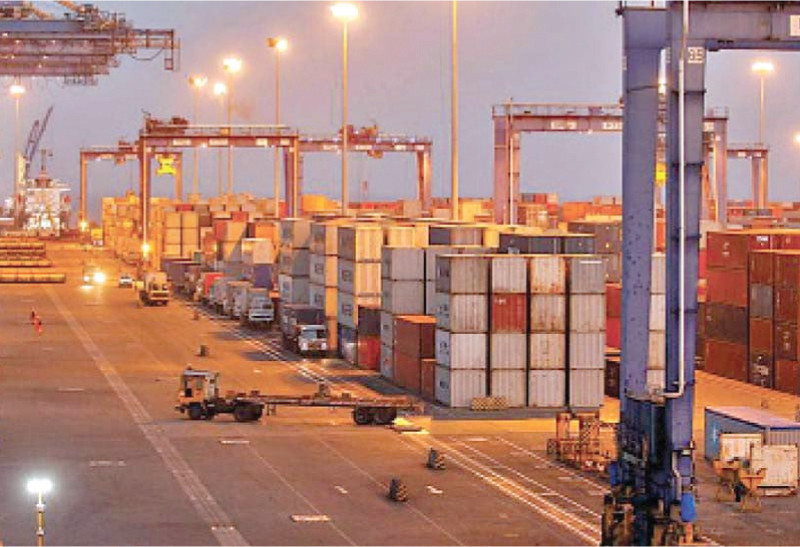KARACHI:
Fulfilling another International Monetary Fund (IMF) condition, the caretaker government has finally operationalised the state-owned EXIM Bank, the export and import development finance institution (DFI), in line with global practices. This move assigns the bank the crucial task of growing and diversifying the country’s exports while creating import substitution opportunities.
The establishment of the EXIM Bank marks the end of the State Bank of Pakistan’s (SBP) role in disbursing concessional financing to exporters. Instead, the SBP will now focus on its regulatory responsibilities.
Speaking to The Express Tribune, the CEO of the Pakistan Business Council (PBC), Ehsan Malik, welcomed this long-awaited move, anticipating that it would provide a higher amount of required funding at subsidised rates to exporters. The goal is to make Pakistan’s exports more regionally competitive and tap into future markets such as Africa and Central Asian Republics (CARs).
However, the public commencement of the bank’s operations is expected to take another couple of months.
Malik, who attended a meeting chaired by Caretaker Finance Minister Dr Shamshad Akhtar, expressed optimism about the bank’s potential.
“Although the government has provided a portion of the required financing to the EXIM Bank, it still remains on paper,” he said, adding that the bank head office is located in Islamabad – far away from export hubs of the country including Karachi, Lahore, Faisalabad and Sialkot.
He noted that the EXIM Bank is currently in its initial stages, with a small team and no branches. He highlighted the need for additional financing to commence and expand operations nationwide. Despite the challenges, Malik hopes that the bank will make significant progress before the completion of the ongoing IMF loan programme in March 2024.
Until August 2023, the central bank had provided subsidised financing to commercial banks at a rate of 19%, representing a 3% discount from its key policy rate of 22%. These funds were then disbursed to exporters by commercial banks to meet operational working capital requirements, incorporating profit margins.
According to data compiled by the central bank, commercial banks had extended an outstanding sum of Rs691 billion under the Export Finance Scheme (EFS) and an additional Rs151.6 billion under non-SBP export financing as of July 2023. Cumulatively, these figures account for around 12% of the total Rs7.06 trillion in loans to private sector businesses in August.
Read Finance minister launches EXIM to boost global trade
The central bank initiated the gradual phase-out of subsidised financing through the export finance scheme (EFS) and Islamic EFS (IEFS) around four months ago. The transition to the EXIM Bank means that banks may now be required to utilise their own resources and subsequently claim subsidies, rather than relying on funding from the central bank.
EXIM Bank Functions
EXIM banks operate globally and play a crucial role in helping exporters expand their reach across the world. After the inauguration of the EXIM Bank in Islamabad, Finance Minister Shamshad Akhtar highlighted that such banks disbursed a staggering $2.5 trillion in trade finance alone last year.
According to Malik, one prominent function of the Export-Import Bank will be offering insurance on financing to exporters to cover risks. This is particularly valuable for exporters targeting riskier markets in Africa and Central Asia.
The bank may face a daunting challenge in maintaining a balanced insurance portfolio, given that major exporters dealing with renowned entities in the West, such as Adidas and Nikai, might not utilize insurance products, relying on the trustworthiness of their buyers.
However, exporters seeking to establish a presence in African and Central Asian markets are likely to embrace insurance options to mitigate risks. International banks often refrain from accepting guarantees provided by central banks associated with riskier markets, making insurance an attractive choice for exporters in these regions.
The primary function of the EXIM Bank will be to provide financing to exporters to enhance the sale of goods and diversify from textile-dominated exports, said Malik. The bank will also offer funding for interest payments on export credit, providing a financial cushion for global importers over negotiated periods.
The EXIM Bank is expected to disburse higher financing to compete in markets with strong competition, such as the US, UK, and Europe. The increase in interest rates in these regions has impacted Pakistan’s export dynamics, as 55% of the country’s exports are directed toward the US, UK, and Europe.
Additionally, the bank is anticipated to provide financing for import substitution and support the export of plants and machinery, an area where Pakistan has yet to establish a significant presence.
Published in The Express Tribune, December 26th, 2023.
Like Business on Facebook, follow @TribuneBiz on Twitter to stay informed and join in the conversation.
